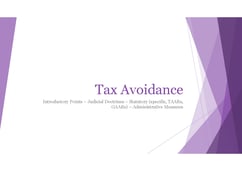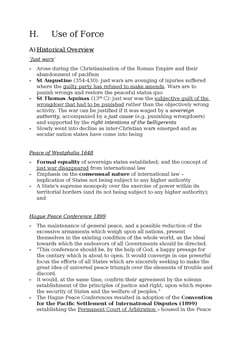Pepper (Inspector of Taxes) v Hart [1993] AC 593; [1992] 3 WLR 1032; [1993] 1 All ER 42
Judgement for the case Pepper (Inspector of Taxes) v Hart
Table Of Contents
KEY POINTS
-
Parliamentary privilege safeguards free speech in Parliament, prohibiting questioning of proceedings.
Courts may refer to parliamentary material when interpreting statutes, especially if ambiguous.
The Bill of Rights 1689 upholds the immunity of parliamentary proceedings from external scrutiny.
-
Taxation of employment benefits, including directors', is vital for revenue.
Concessionary schemes for school staff's sons promote education.
Quantifying non-monetary benefits for tax purposes is crucial. Employees may offset benefits by paying reduced fees.
-
The Finance Act 1976 likely addresses tax treatment of benefits.
The Hansard rule, limiting references to parliamentary proceedings in statute interpretation, is evolving.
Courts may relax this rule when legislation is ambiguous, obscure, or leads to absurd outcomes.
Clear ministerial statements aid statute interpretation. The ongoing debate revolves around whether to relax rules on referencing parliamentary proceedings for a more flexible approach to statutory interpretation. Balancing clarity and justice is essential.
FACTS
Mr. J. T. Hart, Mr. M. J. P. Knott, Mr. T. Southall, Mr. H. J. Campbell-Ferguson, Dr. D. M. Penter, Mr. B. B. White, Mr. J. P. Knee, Mr. W. J. Denny, Mr. A. J. Hunter and Mr. C. Nicholls (since deceased) ("The Taxpayers") were employed as staff members at Malvern College (“School”) a fee-paying public School, and were considered higher-paid employees under section 61 of the Finance Act 1976.
-
The School implemented a concessionary fees scheme, allowing the Taxpayers, as staff members, to have their sons educated at one-fifth of the fees charged to other parents.
The School retained absolute discretion to admit any boy and could withdraw the concession at its discretion.
During the relevant years, the School had surplus pupil capacity, enabling them to admit the Taxpayers' sons without denying entry to other qualified boys.
-
For the tax years from 1983-84 to 1985-86, the Taxpayers were assessed for Schedule E income tax based on the benefits received through the concessionary scheme, treated as "emoluments" of their employment under section 61 of the 1976 Act.
The cash equivalent of these benefits was subject to income tax as per section 63 of the Act.
The Taxpayers conceded receiving an emolument but argued that the cash equivalent should be determined using the principle of marginal costing.
The special commissioner ruled in favor of the Taxpayers, finding that the school did not incur additional expenditure in educating their sons, except for specific items of equipment and food costing less than the concessionary fees paid.
The judge, however, allowed an appeal by the Crown, determining that the cash equivalent of the benefit should be a rateable proportion of the overall expenditure incurred by the school for providing facilities to all pupils.
The Court of Appeal upheld this decision.
-
On appeal by the Taxpayers, the Appellate Committee initially heard the case but referred it to an enlarged Appellate Committee before judgment.
This referral aimed to determine whether the existing exclusionary rule related to the construction of statutes should be relaxed, allowing consultation of Hansard as an aid to construction.
JUDGEMENT
The appeal was allowed, relaxing the rule against referencing Parliamentary material in statutory construction under specific conditions. Clear ministerial statements could be used without questioning Parliamentary proceedings.
On the interpretation of section 63 of the Finance Act 1976, Taxpayers were assessable on the extra cost of the benefit, with a dissenting view suggesting a reference to Hansard for clarification.
The crucial point emphasized was that the Taxpayers' sons occupied surplus places at the School, with their rights being entirely discretionary.
COMMENTARY
-
Parliamentary privilege safeguards free speech, and courts may refer to parliamentary material when interpreting statutes.
The Bill of Rights 1689 protects parliamentary proceedings from external scrutiny.
-
Taxation of employment benefits is for revenue, and concessionary schemes for School staff's sons raise questions about quantifying non-monetary benefits for tax purposes.
The Finance Act 1976 likely addresses tax treatment of benefits.
The ongoing debate revolves around relaxing the Hansard rule in statute interpretation, with clear ministerial statements aiding the process.
This case involving Taxpayers employed at a public school, assessed for income tax on concessionary benefits, highlights the balance between clarity and justice, ultimately allowing the appeal and emphasizing discretionary rights regarding surplus School places for their sons.
For Further Study on Pepper (Inspector of Taxes) v Hart
Need instant answers? Our AI exam tutor is here to help.
Ask questions 🙋 Get answers 📔 It's simple 👁️👄👁️
Our AI is educated by the highest scoring students across all subjects and schools. Join hundreds of your peers today.
Get StartedSimilar Cases
Related Product Samples
These product samples contain the same concepts we cover in this case.
| Tax Law | Interpretation And Avoidance Notes (19 pages) |


